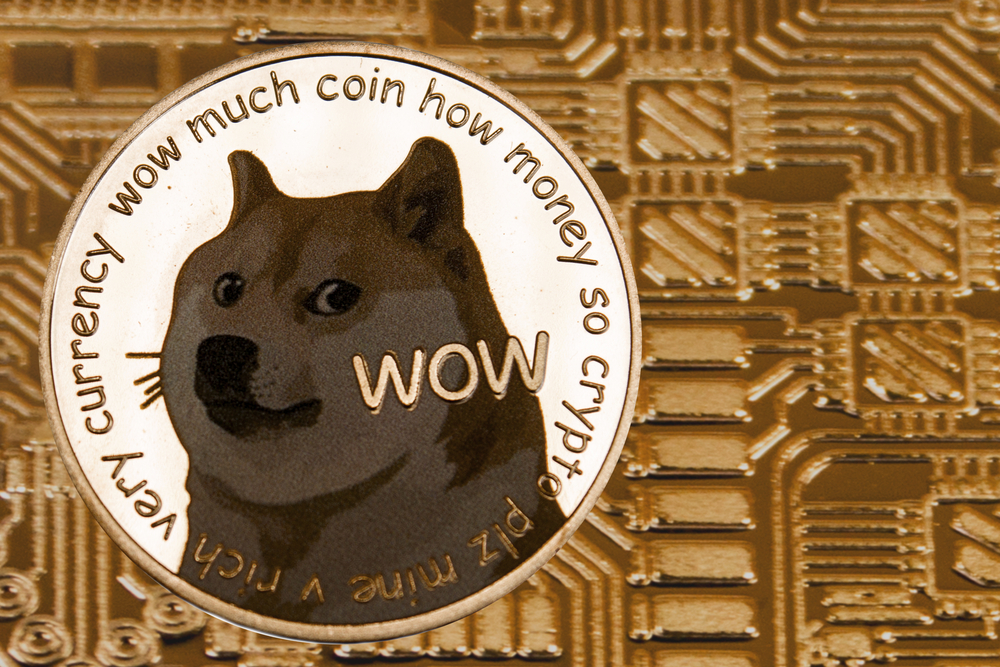One of 2021’s success stories in the somewhat controversial, so-called meme investing is Dogecoin. This cryptocurrency started making serious headlines in February 2021, first with a near 1000% increase within ten days.
In April 2021, it again made another unprecedented stride as it reached a per-token value of $0.45, making it the fifth most valuable cryptocurrency for the time being. Its total rise since the start of 2021 is just north of 6500%, which is quite impressive.
Dogecoin has been a favorite topic of several celebrities, most notably American billionaire and serial entrepreneur Elon Musk. To some, the coin seems like a dark horse. As you are about to learn, DOGE has been around longer than most projects and is becoming more than just a meme from which it found its origins.
What is Dogecoin, and how does it work?
In the spirit of simplicity, satire, and friendliness through the coin’s Shiba Inu logo, it’s easy to observe Dogecoin is just another first-generation, decentralized, open-source, and peer-to-peer digital currency.
Like Bitcoin, Litecoin, etc., Dogecoin is a medium of exchange amongst accepting consumers and merchants or businesses. However, the most popular use of DOGE for several years now is a tipping token on a few social media networks, most notably on Reddit and Twitter.
Users on these platforms tip each other to provide intriguing content. On Reddit, the existing tight-knit communities refer to themselves as ‘Shibes’ with their unique ‘Shibe’ language.
Additionally, there are various websites, known as faucets, listed on Dogecoin’s subreddit offering free DOGE as an incentive to use the coin. Anyone interested in buying DOGE can choose countless hot and cold wallets available on the internet. For trading purposes, plenty of cryptocurrency exchanges exist for this endeavor.
History of Dogecoin
As briefly mentioned, Dogecoin got its start as far back as December 2013, a period when cryptocurrencies were relatively obscure and not as complex as they are currently. The creation of Dogecoin looked to capitalize on the Doge meme that gained viral popularity in late 2013.
The meme depicted Comic Sans text of comical, broken English around a Shiba Inu dog. It was around this time when two software engineers, Billy Markus from America, and Jackson Palmer from Australia, conceptualized Dogecoin.
Aside from being inspired by this online humor, both men sort to create DOGE as a less serious, less controversial, and more accessible cryptocurrency. The central theme of Dogecoin is fun and spreading goodwill and was never built necessarily to compete with any of the more established cryptocurrencies at the time.
Fortunately, Markus and Palmer had extensive experience working for the tech giants IBM and Adobe, respectively. Prior to the technical creation of Dogecoin, Palmer registered the ‘dogecoin.com’ domain name with a splash screen preview of the coin’s logo mimicking the original meme’s design.
Dogecoin’s coding is based on the Scrypt hashing algorithm that was already in use with Litecoin. Markus has claimed it only took three hours to build Dogecoin. Till today, DOGE has technically remained the same for the most part.
On 06 December 2013, Dogecoin officially went live and saw over a million visitors on that same day, according to various reports.
How is Dogecoin secured?
Like any budding cryptocurrency, security is crucial to ensure the network thrives in confirming transactions, preventing double-spending and hacking.
DOGE’s blockchain uses the popular proof-of-work consensus mechanism, a system involving miners (or ‘diggers’ as they are known with Dogecoin) using advanced computers competing to solve complex equations for the privilege of adding blocks.
The block reward is currently Ð10 000, while the time it takes for that block to form is roughly 60 seconds. This quick time makes Dogecoin a better coin to transact with as it improves the customer experience and enables lower fees. Unlike more established PoW projects, mining is less competitive with Dogecoin.
DOGE’s supply is unlimited; at the time of writing, approximately 129.3 billion coins are circulating. Interestingly, the developers initially planned for 100 billion tokens but surpassed this figure in 2015. Ever since this time, we roughly see 5 billion new DOGE being mined yearly.
Final word
Overall, the ethos of DOGE is a cryptocurrency not taking itself too seriously. It is quite a unique project since it started from an internet joke. Many analysts mention this peculiarity as one of the reasons for Dogecoin’s success if we consider the impact of meme culture presently.
Dogecoin may be a good investment because:
- It is a dirt-cheap in price.
- The cryptocurrency has one of the friendliest and most passionate communities hoping for everyone to buy the coin, which would naturally increase its value.
- High-profile individuals or celebrities like Elon Musk have continually endorsed the project.
- Generally, investors are moving towards cryptocurrencies as a hedge against the dollar or fiat currencies overall. Moreover, there is a financial incentive to mining the coin.
Dogecoin may be a bad investment because:
- Perhaps the biggest detraction for many is the perception of DOGE being a speculative bubble whose value is largely driven by media coverage. Technically, there is nothing special about the coin as countless others like it already exist in the industry.
- Dogecoin is an inflationary coin, meaning there is no limit to its supply. Although several projects have the same structure, they are usually not as valuable as other assets like Bitcoin, Ripple, Cardano, Chainlink, etc.
- Like any cryptocurrency, Dogecoin can be highly volatile and experience wild price swings at any moment.
